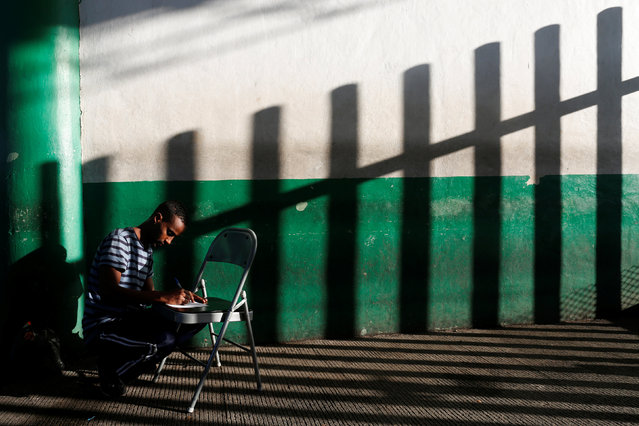
A Somali migrant fills a form outside the immigration office to cross Mexico and continue his journey to the U.S in Tapachula, Chiapas, Mexico November 16, 2016. (Photo by Carlos Jasso/Reuters)
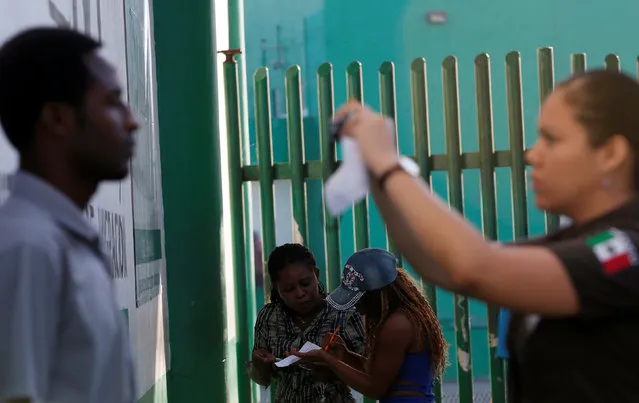
An immigration officer takes a picture of a migrant as others fill a form outside the immigration office to fix their papers and continue their journey in Tapachula, Chiapas, Mexico November 16, 2016. (Photo by Carlos Jasso/Reuters)
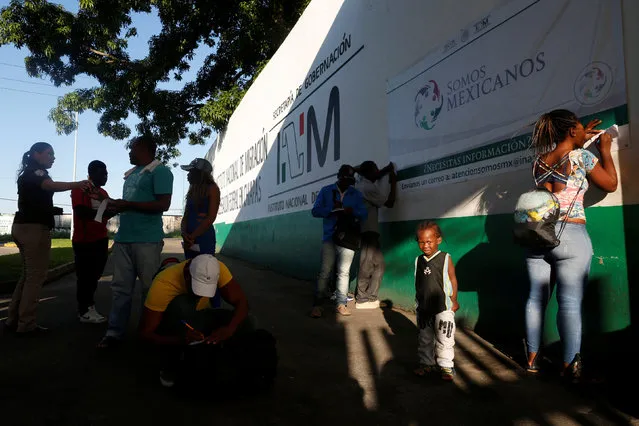
A child looks on, as migrants from different nationalities fill a form outside the immigration office to cross Mexico and continue their journey in Tapachula, Chiapas, Mexico November 16, 2016. (Photo by Carlos Jasso/Reuters)
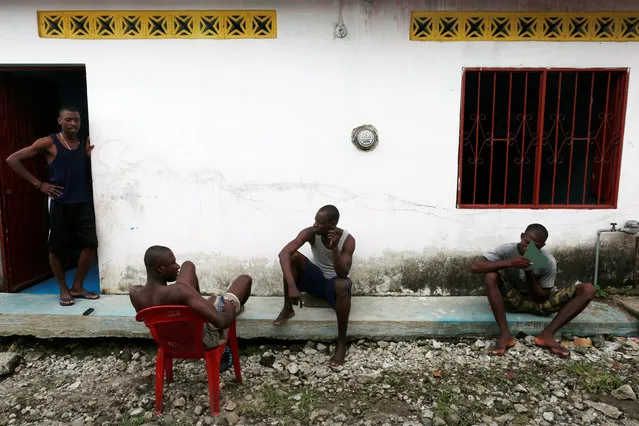
Haitian migrants sit outside a house as they wait for money to be sent and continue their journey to the U.S in Tapachula, Chiapas, Mexico November 16, 2016. (Photo by Carlos Jasso/Reuters)
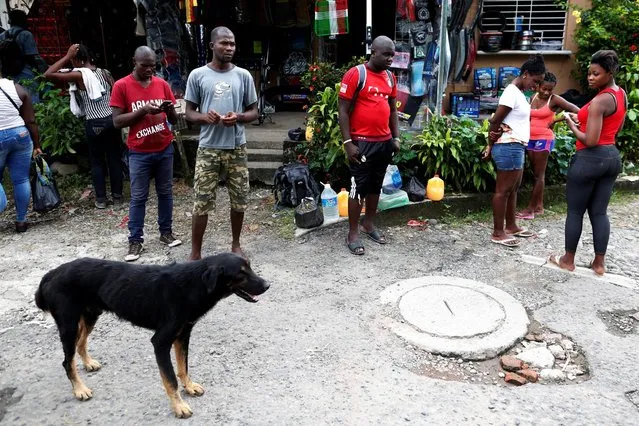
Haitian migrants wait for a bus to continue their journey to the U.S in Tapachula, Chiapas, Mexico November 16, 2016. (Photo by Carlos Jasso/Reuters)
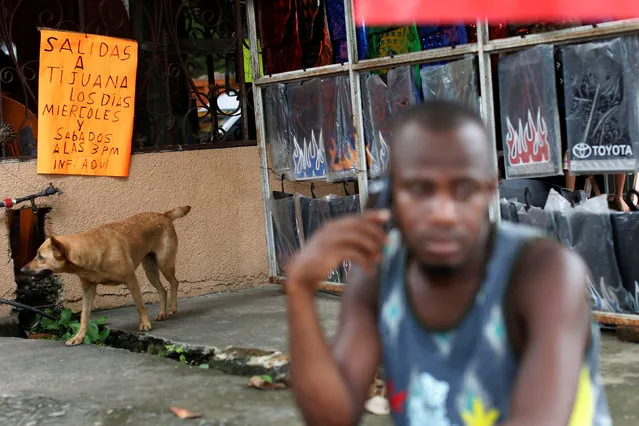
A placard is seen behind a Haitian migrant talking on a mobile in Tapachula, Chiapas, Mexico November 16, 2016. The placard reads “Departures to Tijuana, Wednesdays and Saturdays at 3pm here”. (Photo by Carlos Jasso/Reuters)
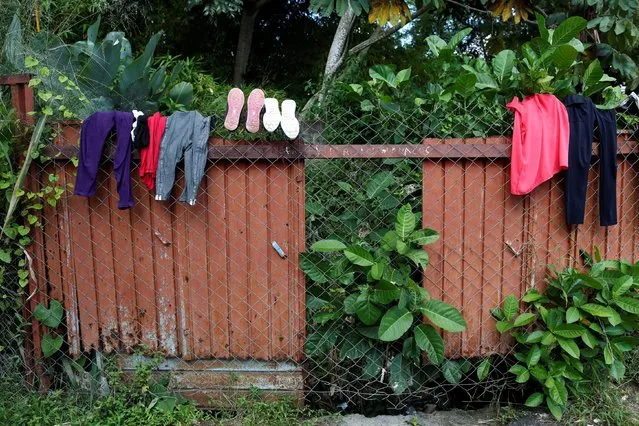
Clothes are pictured hanging at Belen migrant shelter in Tapachula, Chiapas, Mexico November 16, 2016. (Photo by Carlos Jasso/Reuters)
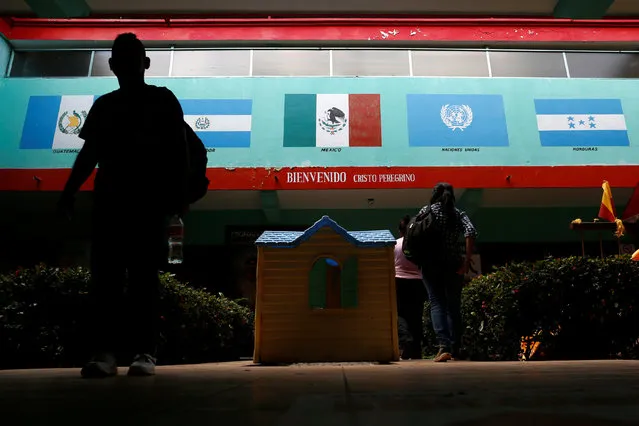
A man walks past pictures of Mexico's and other Central America countries' flags at Belen migrant shelter in Tapachula, Chiapas, Mexico November 16, 2016. (Photo by Carlos Jasso/Reuters)
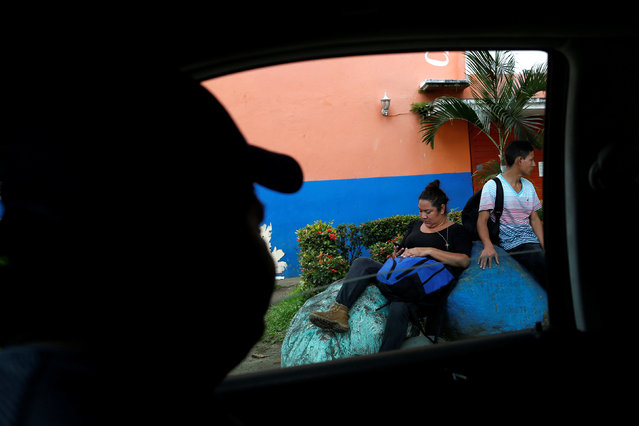
Central America migrants rest outside the Belen migrant shelter in Tapachula, Chiapas, Mexico November 16, 2016. (Photo by Carlos Jasso/Reuters)
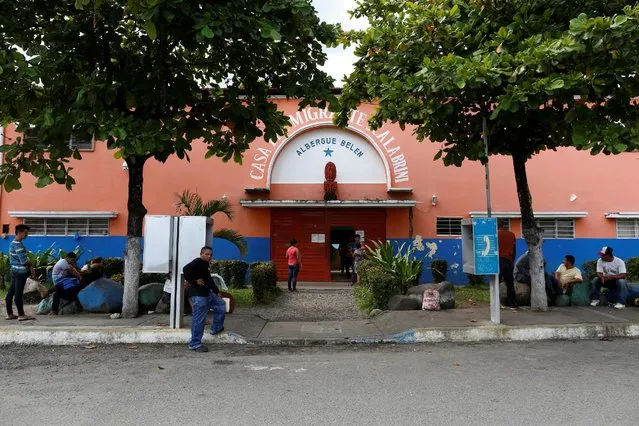
Migrants from different nationalities stand outside the Belen migrant shelter in Tapachula, Chiapas, Mexico November 16, 2016. (Photo by Carlos Jasso/Reuters)
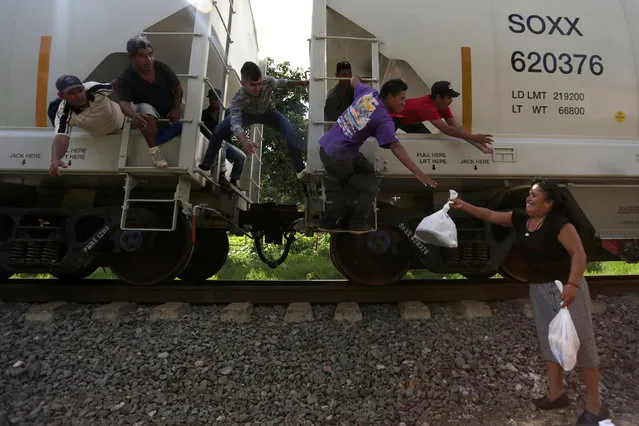
A woman from a group called “Las Patronas” (The bosses), a charitable organization that feeds Central American immigrants who travel atop a freight train known as “La Bestia”, passes food and water to immigrants on their way to the border with the United States, at Amatlan de los Reyes, in Veracruz state, Mexico October 22, 2016. (Photo by Daniel Becerril/Reuters)
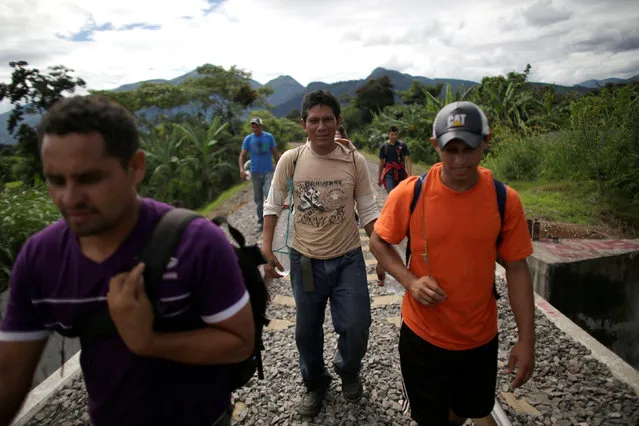
Immigrants walk toward the premises of a group called “Las Patronas” (The bosses), a charitable organization that feeds Central American immigrants on their way to the border with the United States who travel atop a freight train known as “La Bestia”, in Amatlan de los Reyes, in Veracruz state, Mexico October 22, 2016. (Photo by Daniel Becerril/Reuters)
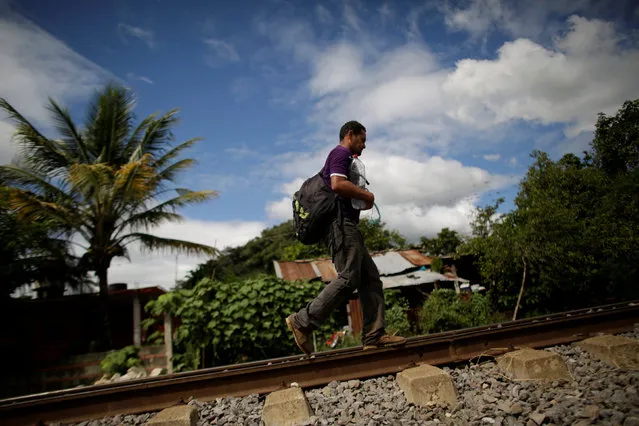
An immigrant walks along a railroad toward the premises of a group called “Las Patronas” (The bosses), a charitable organization that feeds Central American immigrants on their way to the border with the United States who travel atop a freight train known as “La Bestia”, in Amatlan de los Reyes, in Veracruz state, Mexico October 22, 2016. (Photo by Daniel Becerril/Reuters)
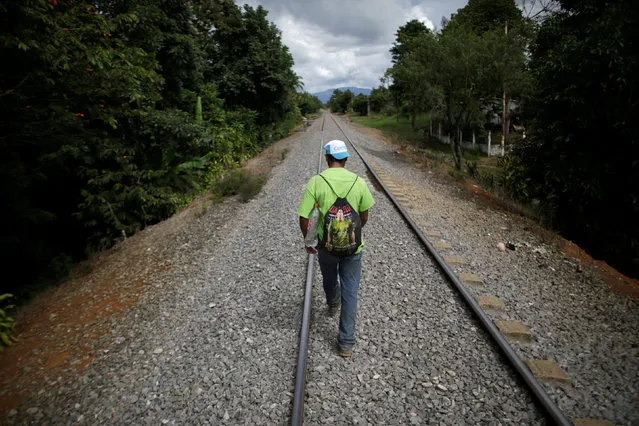
An immigrant walks along a railroad toward the premises of a group called “Las Patronas” (The bosses), a charitable organization that feeds Central American immigrants on their way to the border with the United States who travel atop a freight train known as “La Bestia”, in Amatlan de los Reyes, in Veracruz state, Mexico October 22, 2016. (Photo by Daniel Becerril/Reuters)
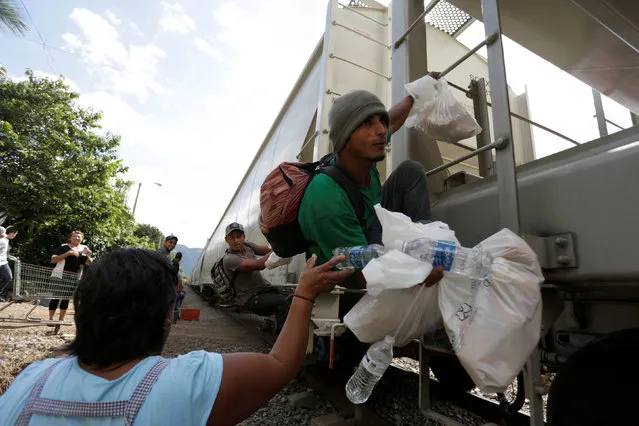
A woman from a group called “Las Patronas” (The bosses), a charitable organization that feeds Central American immigrants who travel atop a freight train known as “La Bestia”, passes food and water to immigrants on their way to the border with the United States, at Amatlan de los Reyes, in Veracruz state, Mexico October 22, 2016. (Photo by Daniel Becerril/Reuters)
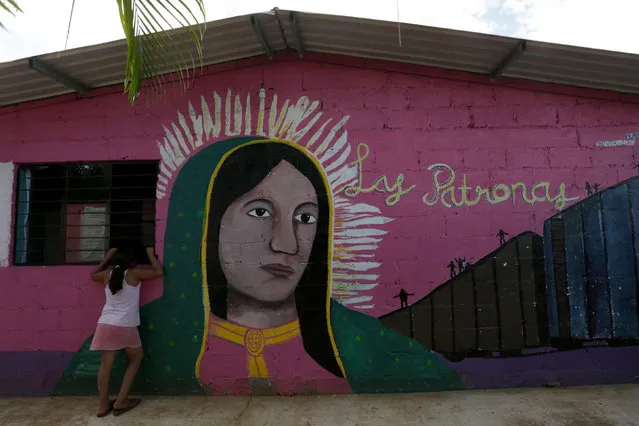
A girl talks to a person (not pictured) at the premises of a group called “Las Patronas” (The bosses), a charitable organization that feeds Central American immigrants on their way to the border with the United States who travel atop a freight train known as “La Bestia”, in Amatlan de los Reyes, in Veracruz state, Mexico October 22, 2016. (Photo by Daniel Becerril/Reuters)
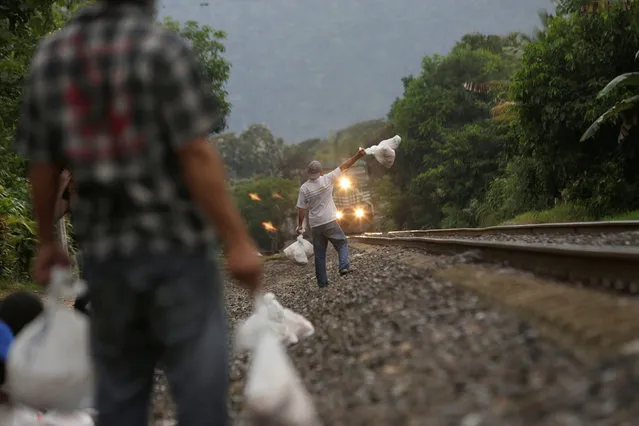
Volunteers from a group called “Las Patronas” (The bosses), a charitable organization that feeds Central American immigrants who travel atop a freight train known as “La Bestia”, hold bags with food and water for immigrants on their way to the border with the United States, at Amatlan de los Reyes, in Veracruz state, Mexico October 21, 2016. (Photo by Daniel Becerril/Reuters)
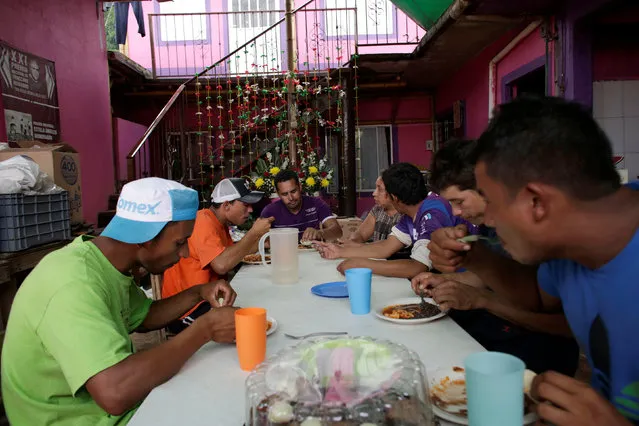
Immigrants eat at the premises of a group called “Las Patronas” (The bosses), a charitable organization that feeds Central American immigrants on their way to the border with the United States who travel atop a freight train known as “La Bestia”, in Amatlan de los Reyes, in Veracruz state, Mexico October 22, 2016. (Photo by Daniel Becerril/Reuters)
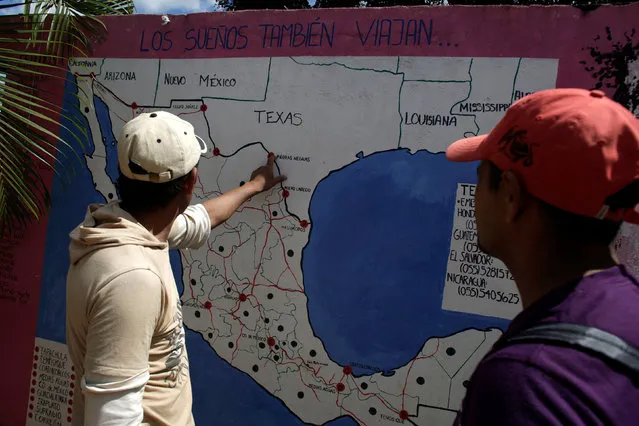
Immigrants check a map of Mexico at the premises of a group called “Las Patronas” (The bosses), a charitable organization that feeds Central American immigrants on their way to the border with the United States who travel atop a freight train known as “La Bestia”, in Amatlan de los Reyes, in Veracruz state, Mexico October 22, 2016. (Photo by Daniel Becerril/Reuters)
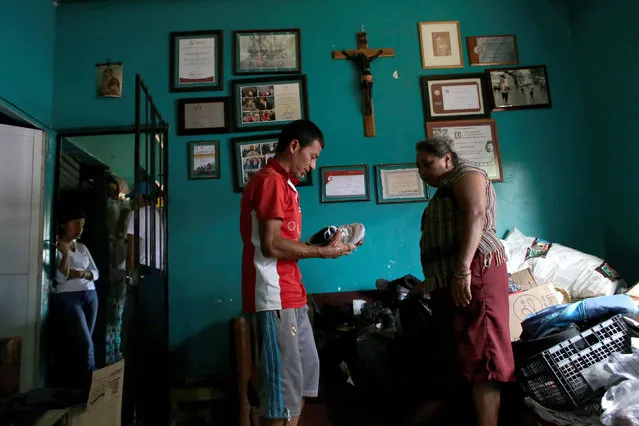
An immigrant receives a pair of shoes from a woman of a group called “Las Patronas” (The bosses), a charitable organization that feeds Central American immigrants on their way to the border with the United States who travel atop a freight train known as “La Bestia”, in Amatlan de los Reyes, in Veracruz state, Mexico October 22, 2016. (Photo by Daniel Becerril/Reuters)
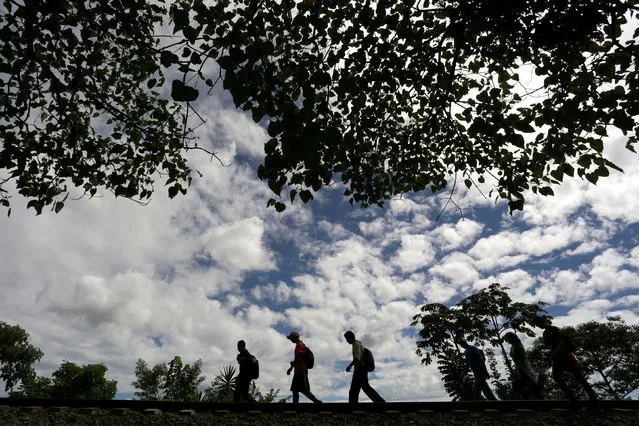
Immigrants walk toward the premises of a group called “Las Patronas” (The bosses), a charitable organization that feeds Central American immigrants on their way to the border with the United States who travel atop a freight train known as “La Bestia”, in Amatlan de los Reyes, in Veracruz state, Mexico October 22, 2016. (Photo by Daniel Becerril/Reuters)
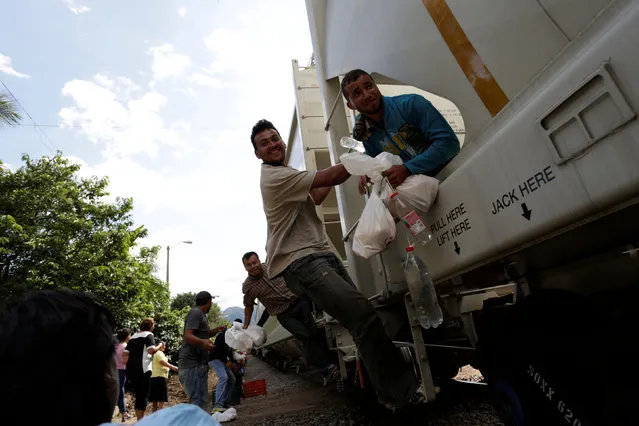
Volunteers from a group called “Las Patronas” (The bosses), a charitable organization that feeds Central American immigrants who travel atop a freight train known as “La Bestia”, pass food and water to immigrants on their way to the border with the United States, at Amatlan de los Reyes, in Veracruz state, Mexico October 22, 2016. (Photo by Daniel Becerril/Reuters)
18 Nov 2016 10:55:00,
post received
0 comments
